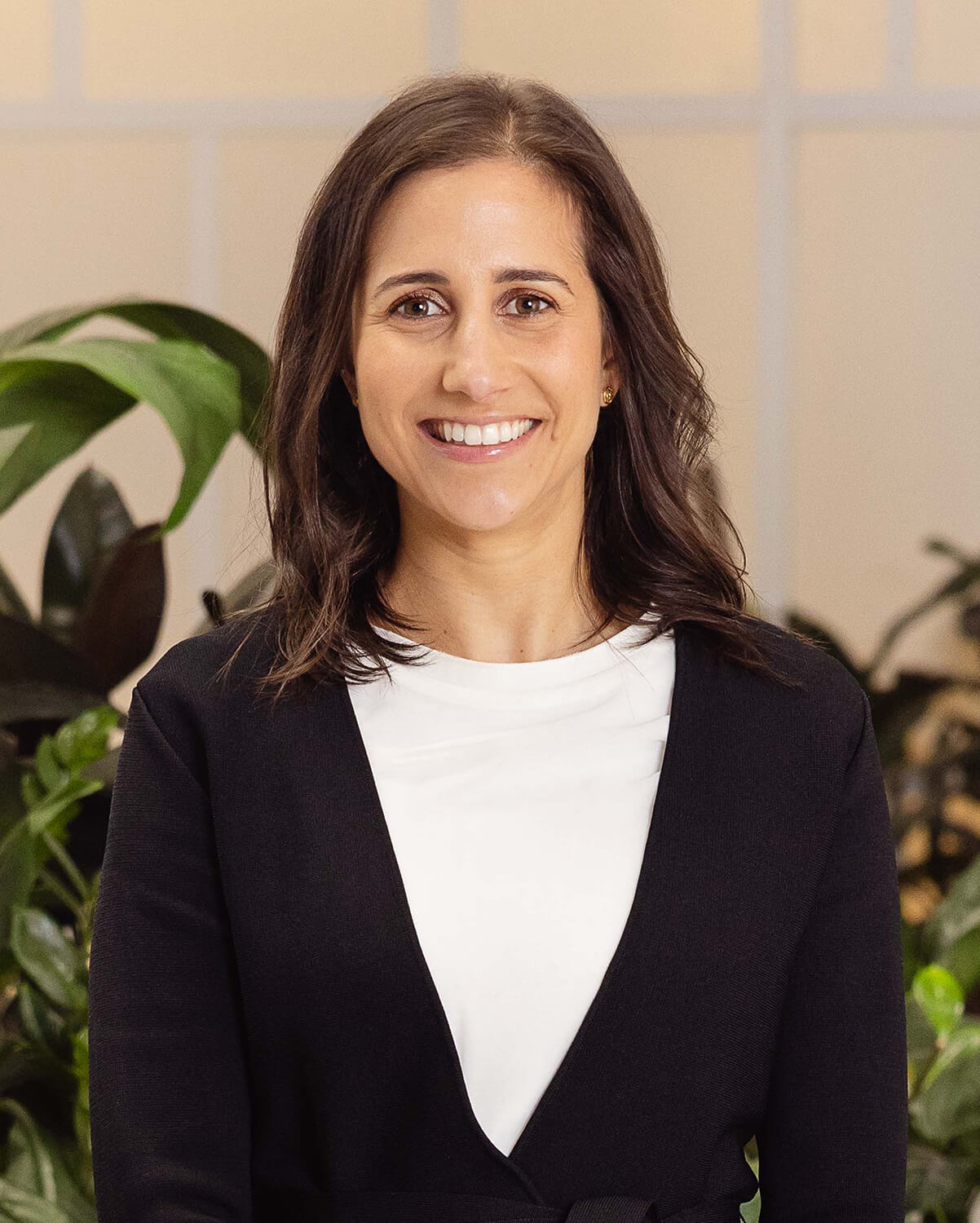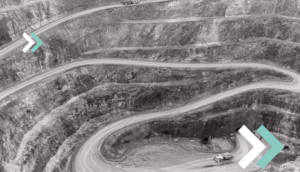We're thrilled to announce this first blog within three series that dive deep into Psychosocial Safety in the workplace. In our second blog, we'll explore where and how to find the right hires to manage psychosocial safety within your organisation, while our third blog will guide you on what to look for in hiring for this role, ensuring you're fostering a workplace culture that nurtures well-being and drives sustained success.
In today's rapidly evolving work landscape, psychological safety and psychosocial safety concepts have gained significant traction; however, the terms are often confused and used interchangeably.
While psychological safety fosters an environment where individuals feel safe to express themselves without fear of retribution, psychosocial safety takes a broader approach, including factors such as workload, work-life balance, job security, and organisational culture – elements that can significantly impact an employee's overall well-being.
Kirsten Romeo, Associate Director of Evolve's Safety & Environment division, highlights the significance of psychosocial safety and underscores its recent ascent to the forefront of organisational priorities, marking a shift in focus towards employees' comprehensive health and wellness. As an HSE specialist, Kirsten works alongside organisational decision-makers, C-Suite Management and WHS professionals to ensure highly qualified and passionate WHS/OHS professionals are correctly appointed to manage Psychosocial Safety in their organisations.
With more than a decade of experience in the recruitment of WHS/HSE/OHS professionals, Kirsten says that:
It's the result of a gradual awakening Over the past 15 years
— KIRSTEN ROMEO, ASSOCIATE DIRECTOR, EVOLVE SAFETY & ENVIRONMENT
This shift to focusing on Psychosocial Risks and Safety hasn't materialised overnight. It's the result of a gradual awakening over the past 15 years. This new focus on overall well-being and managing psychosocial risk has added another discipline to the traditional, generalist "safety" professional while adding another layer of compliance and assurance requirements.
As stated on Comcare, Psychosocial hazards and risks are a core focus within the updated Australian Government WHS laws that took effect on April 1st, 2023. These amended regulations reaffirm the need for organisations to identify and manage hazard-associated risks to workers’ psychological health and safety.
What is a Psychosocial Risk?
With this new focus on mitigating psychosocial risks in the workplace, the International Organization for Standardization (ISO) has released a new ISO45003:2021 standard, based on the original ISO45001, designed to manage psychosocial risk within an occupational health and safety (OH&S) management system.
As per the standard, a Psychosocial Risk is a “combination of the likelihood of occurrence of exposure to work-related hazard(s) of a psychosocial nature and the severity of injury and ill-health that can be caused by these hazards… Hazards of a psychosocial nature include aspects of work organisation, social factors at work, work environment, equipment and hazardous tasks.”
To guide organisations through the legislation change, Safe Work Australia has released a ‘Code of Practice: Managing Psychosocial Hazards at Work’ which can be downloaded here. While most Australian states have implemented the legislation, according to Engage Victoria, the state of VIC is still under consideration following public consultation.
In saying that, QLD and Commonwealth implemented the April 1st, 2023 ‘Code of Practice’. Therefore, anyone in VIC covered under Comcare must adhere to the new code of practice. As workplaces mature and evolve, this separate risk management sphere becomes pivotal in shaping a nurturing and growth-oriented work culture.
Examples of Psychosocial Risks
We can uncover a spectrum of psychosocial risks that cast shadows over the workplace landscape by drawing insights from Safe Work Australia. As stated by Safe Work Australia, “A psychosocial hazard is anything that could cause psychological harm (e.g. harm someone’s mental health).”
Common psychosocial hazards at work include:
- Job demands
- Low job control
- Poor support
- Lack of role clarity
- Poor organisational change management
- Inadequate reward and recognition
- Poor organisational justice
- Traumatic events or material
- Remote or isolated work
- Poor physical environment
- Violence and aggression
- Bullying
- Harassment, including sexual harassment, and
- Conflict or poor workplace relationships and interactions
Deep Dive Into 3 Common Psychosocial Hazards Found In The Modern Workplace:
Job demands and low job control are prominent psychosocial hazards in the workplace that can have far-reaching implications. When coupled with limited control over tasks, high job demands create a pressure cooker environment that can lead to heightened stress levels and reduced well-being.
This psychosocial hazard can negatively impact mental health, job satisfaction, and work performance. Addressing these factors is pivotal in establishing a psychologically safe workplace that values employees' autonomy and ensures a balanced and manageable workload, fostering well-being and sustained productivity.
Inadequate reward and recognition in the workplace is a significant psychosocial hazard, as it can erode employee morale and contribute to a sense of undervaluation.
When employees consistently feel that their efforts go unnoticed or unrewarded, it can lead to frustration, disengagement, and even demotivation. This psychosocial hazard can undermine job satisfaction, impact overall mental well-being, and hinder the establishment of a supportive work environment. Addressing this hazard is pivotal in fostering a psychologically safe workplace where employees feel appreciated and motivated to contribute their best.
Poor Leadership and Support' in the workplace is a significant psychosocial hazard, negatively affecting employee well-being and overall work dynamics.
When leadership lacks clarity and consistency and fails to provide necessary guidance, it creates an environment of uncertainty, isolation, and stress. These psychosocial hazards can result in decreased job satisfaction, increased stress, and strained interpersonal relationships.
Fostering Psychosocial Safety in the Workplace
What does it mean to foster Psychosocial Safety at work? What does Well-being in the workplace look like? As defined by the new ISO45003:2021 standard (which will likely become the standard definition, well-being at work is the “fulfilment of the physical, mental, social and cognitive needs and expectations of a worker related to their work… Well-being at work can also contribute to the quality of life outside of work… [and] relates to all aspects of working life, including work organization, social factors at work, work environment, equipment and hazardous tasks.”
Fostering Psychosocial Safety in the Workplace is a strategic pursuit to create an environment where employees feel secure, valued, and empowered. This approach requires trust, open communication, a supportive work environment, and employee involvement and participation.
Open communication is a pivotal pillar in establishing psychological safety within the workplace. It gives employees the confidence to voice their thoughts, opinions, and concerns without fearing negative consequences.
Creating an atmosphere where different viewpoints are encouraged and respected fosters collaboration, innovative thinking, and productive dialogue. Encouraging active listening, providing constructive feedback, and valuing diverse perspectives contribute to strengthening trust. Psychological safety takes root when employees perceive their contributions are valued and their voices are heard.
This may sound obvious, but it's fundamental to nurturing psychological safety. A supportive work environment encompasses a range of measures to promote employees' well-being, such as Employee support programs or organisational EAP programs and wellness initiatives, offering resources to address personal and work-related challenges or concerns.
At Evolve, we focus on implementing well-being policies such as mental health days, hybrid working arrangements, birthdays off, working anywhere in the world, and working in any office to communicate that their health and happiness matter.
When engaged in decision-making processes, employees feel a sense of ownership and influence over their work environment. This involvement enriches the quality of decisions by tapping into diverse perspectives and bolsters morale and job satisfaction.
Initiatives encouraging employee participation, such as brainstorming sessions and collaborative problem-solving, reinforce the notion that every individual's contribution is valued.
Wrapping Up
Nurturing a resilient work environment demands a proactive stance towards managing psychosocial risks. Regardless of the working relationship between the organisation and the person undertaking the work, the employer is responsible for that person's Safety.
As stated on comcare.gov.au, "under the WHS laws, a person is a worker if the person carries out work in any capacity for a PCBU/employer including work as an employee, a contractor, subcontractor or their employees, a labour hire worker, an outworker, apprentice or trainee, a work experience student, or a volunteer."
The path forward involves a comprehensive understanding of the psychosocial landscape, an appreciation of the nuanced interactions between hazards, and a dedication to fostering well-being that reflects more broadly on the physical and psychological well-being of the organisation.
Kirsten talks about the future of hiring within the Psychosocial Safety space and says that:
organisations are Now required to have a Systematic & Robust approach
— KIRSTEN ROMEO, ASSOCIATE DIRECTOR, EVOLVE SAFETY & ENVIRONMENT
Due to the legislation changes, organisations must have a systematic and robust approach to managing psychosocial risk. Therefore, it is critical to hire specialised professionals to handle this ever-evolving facet of organisational Health & Safety to reduce the risk of overburdening WHS professionals with their ever-expanding remit and ensure organisations are meeting their legislative requirements.
In today's rapidly changing work environment, prioritising psychosocial safety has become imperative for Australian organisations. As the boundaries between work and personal life blur, addressing psychosocial risks and fostering a supportive atmosphere is essential.
The interplay of factors like workload, autonomy, and leadership directly impacts employee well-being, influencing job satisfaction and organisational success.
If you got value from this blog, be the first to read the next. Please fill out the form below to receive our second blog within the series before its release date, where we'll explore where and how to find the right hires to manage psychosocial safety within your organisation.
Meet EVOLVE SAFETY & ENVIRONMENT

KIRSTEN ROMEO
Associate Director

CHLOE WEAVER
Principal Consultant

NICOLE ROGALSKY
Principal Consultant

FERGUS MACLEAN
Recruitment Consultant

JAYNIKA VAGHANI
Recruitment Resourcer
Blog: 1/3 – How To Manage Psychosocial Safety In The Workplace: A Crucial Aspect Of Australian Organisations









